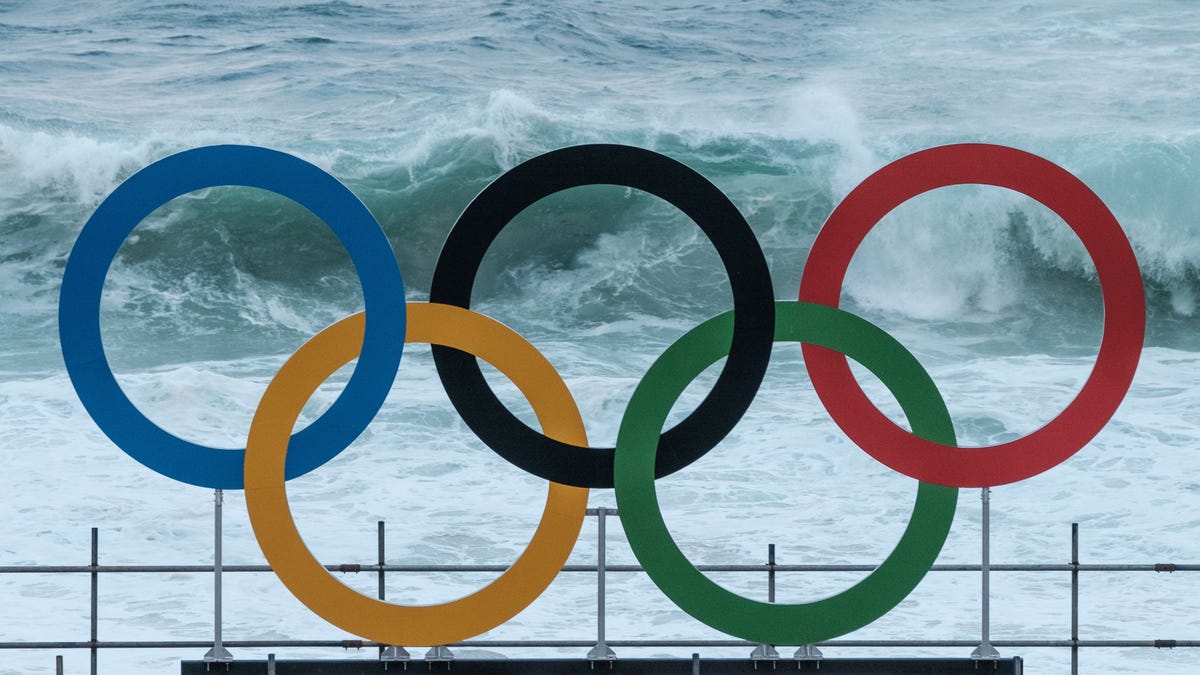As Olympic stars vie for medals, tech battles Zika in Rio
Technology may prove to be the answer to containing the spread of Zika during the Olympic games in Brazil.

Athletes can't just focus on sticking the perfect landing or diving with flawless form at the Olympics in Rio de Janeiro. They'll also have to worry about Zika.
Fortunately, it's not just athletes converging in Brazil. One organization is using mapping technology to track the spread of the infectious disease. Another is giving away smart thermometers to keep tabs on symptoms that might flare up. The World Health Organization launched a Zika app to provide information about the disease. After the Olympics, IBM will provide local authorities with ways to track weather, social media data and travel patterns.
It's just the latest example where technology plays an increasingly critical role in the world of health care. The 2016 Olympic Games, a 17-day event that kicks off Friday night, provide a high-profile stage for tech to shine as a possible way to curb Zika, which has shown a scary tendency to move around.
Prior to 2015, Africa, Southeast Asia and the Pacific Islands reported cases of Zika, and the virus has now spread to countries in South and Central America, including Brazil, according to the Centers for Disease Control and Prevention (CDC). Last week, Florida Gov. Rick Scott confirmed the first cases of Zika transmitted locally by mosquitoes in the US.
Pass the bug spray.
As many as 500,000 people, including 200,000 Americans, will travel to Rio for the quadrennial summer games. Experts worry about pregnant women who will attend as well as those who may conceive in the next couple of years. In both cases, there's a risk that Zika can spread to the fetus. While adults rarely exhibit symptoms, children may develop microcephaly in utero, a condition that affects the child's head size and can lead to seizures, developmental delays and other dangerous effects.
Nearly 200 health experts penned an open letter to the World Health Organization suggesting that the games be postponed or moved to another venue due to Zika's health risk. The WHO said there is "no public health justification" for "cancelling or changing the location of the 2016 Olympics." The organization did advise that pregnant women skip the games.
Mapping Zika
Halting Zika starts with figuring out how it spreads. Esri, a global mapping organization, is supporting local authorities and coordinating field workers to track and contain the disease in Rio.
Knowing where outbreaks occur and the demographic data of different regions -- think an urban district with women of childbearing age -- gives authorities targets for their limited resources. Experts can use the information for predictive analysis. If you know a certain area near the Olympic grounds will experience heavy rainfall where mosquitoes might lay eggs, you can flag it as high risk.
Local authorities conducted aerial pesticide spraying to eradicate populations of mosquitoes prior to the games. The flight crews sent back the exact locations where they sprayed, adding to a continuously updating treatment map, according to Esri Chief Medical Officer Estella Geraghty. Field workers forwarded similar information from their phones.
Participants and attendees of the Olympics can discuss their health using Kinsa's app.
"Real-time situational awareness [allows for the] best possible decision-making," she said.
The same map boasts hundreds of layers of additional data, including population demographics, terrain and outbreaks. Esri also employs crowdsourced comments from members of the public, who call local agencies with sightings of mosquitoes or reports of illness, to get a better idea of the situation surrounding the Olympic facilities.
Crowdsourcing data
Residents and travelers will also play a role in tracking Zika during the Olympics.
Kinsa, which makes smart thermometers, created an app to crowdsource local reports of disease outbreaks. The company gave its thermometers to seven teams and to individual athletes heading to the Olympics. When you take your temperature, the information is logged into an app, and individuals can opt in to let that data be used to form a broader understanding of the situation at hand.
The crowdsourced data paints a picture of the local "health weather," Kinsa CEO Inder Singh said. Users can see what percentage of people in their community are experiencing high temperatures or reporting symptoms like chills. Kinsa does not have enough involvement to warrant certification from the Olympic committee.
Still, Singh created a "groups" feature called Athlete's Village to allow participants in the Olympics and other attendees to chat through the app about their health and to ask each other questions.
Though Zika commands headlines today, there's always the next outbreak. Fortunately, the tech allows us "to reconfigure and apply [them] to the next problem," Geraghty said.
Let the games begin.

